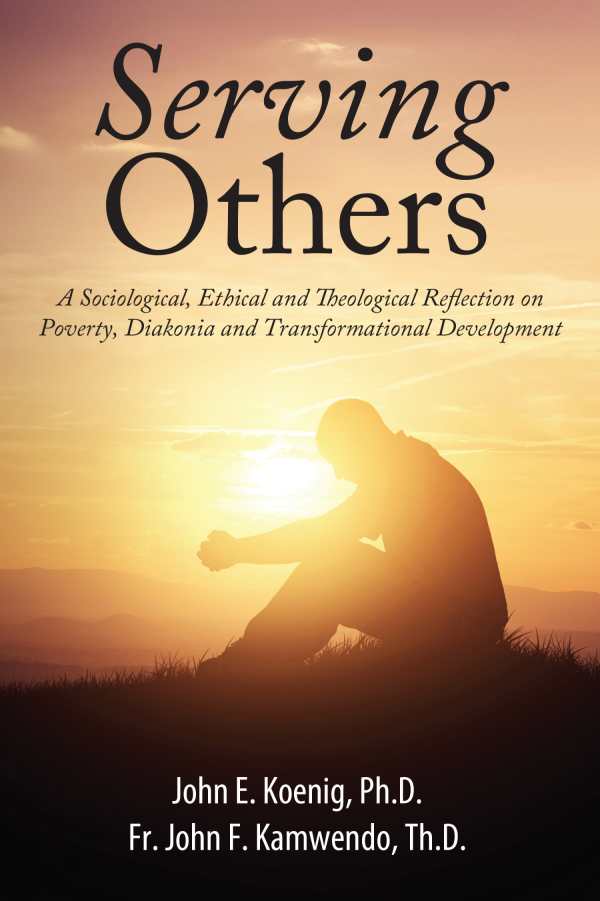Serving Others
A Sociological, Ethical and Theological Reflection on Poverty, Diakonia, and Transformational Development
- 2017 INDIES Finalist
- Finalist, Religion (Adult Nonfiction)
Careful and theological, Serving Others is full of fresh insights into the Catholic Church’s role in combating poverty in Africa.
John E. Koenig and Father John F. Kamwendo’s theological inquiry Serving Others is erudite and well argued as it addresses the difficult issue of endemic poverty.
From a Roman Catholic perspective, the work examines the Church’s effectiveness at diakonia, or service. It is the summation of a research study that reviewed available literature and social dogmas alongside on-the-ground interviews. Its material is extensive, complex, and comprehensive, compellingly arguing the need for “transformational development” and pointing to the Church’s failure at achieving related goals.
Across thirteen chapters, this well-organized work effectively combines theological ideas, Catholic social teachings, and biblical principles to address the realities of an area stricken by poverty. It first explores the concept of service itself before examining the Church’s efforts at exemplifying the biblical mandate. Transformational development is explored before moving into the book’s case study focus: poverty in Tanzania.
Tanzania gained independence in 1961; the Catholic Church subsequently played a strong role in its development. However, the high-minded ideals of biblical teachings stand in clear contrast to daily realities, and Koenig and Kamwendo highlight individuals’ real-life stories to show that generational poverty is still a very real issue. Despite extant Church efforts, the rich are still getting richer and the poor poorer.
The book’s structure grounds the topic excellently, effectively placing it in context before considering details and specifics. Though this arrangement is compelling, the book remains a lengthy and challenging read, offering lots of detail about the study’s theological groundings, technique, and collected data. Reading may be dry, but all details serve a purpose and help elucidate a complex topic. There are no easy solutions, because even modeling the problem is difficult.
Serving Others forwards new ideas to better combat the challenges of poverty, including a new understanding of diakonia that involves methods like changing the local Church’s focus to more intentional development and seeking to improve the population’s skills.
Academic in tone and style, the book frequently references other studies, papers, and published material to provide support for its ideas, which are generally interesting and informative, though such sections drag. Interesting insights, such as linking diakonia with Jesus’s beatitudes and Catholic social teachings to make the point that the character of a disciple must be one of service, pop up throughout.
Intended for a Catholic audience, the book’s most interesting moments come through the interplay between the ideas of Pope Francis and more established Catholic dogma. The pope’s thoughts connecting poverty and the sacrament of confession are intriguing and give the work a contemporary edge.
Careful and theological, Serving Others is full of fresh insights into the Catholic Church’s role in combating poverty in Africa.
Reviewed by
Jeremiah Rood
Disclosure: This article is not an endorsement, but a review. The publisher of this book provided free copies of the book and paid a small fee to have their book reviewed by a professional reviewer. Foreword Reviews and Clarion Reviews make no guarantee that the publisher will receive a positive review. Foreword Magazine, Inc. is disclosing this in accordance with the Federal Trade Commission’s 16 CFR, Part 255.

